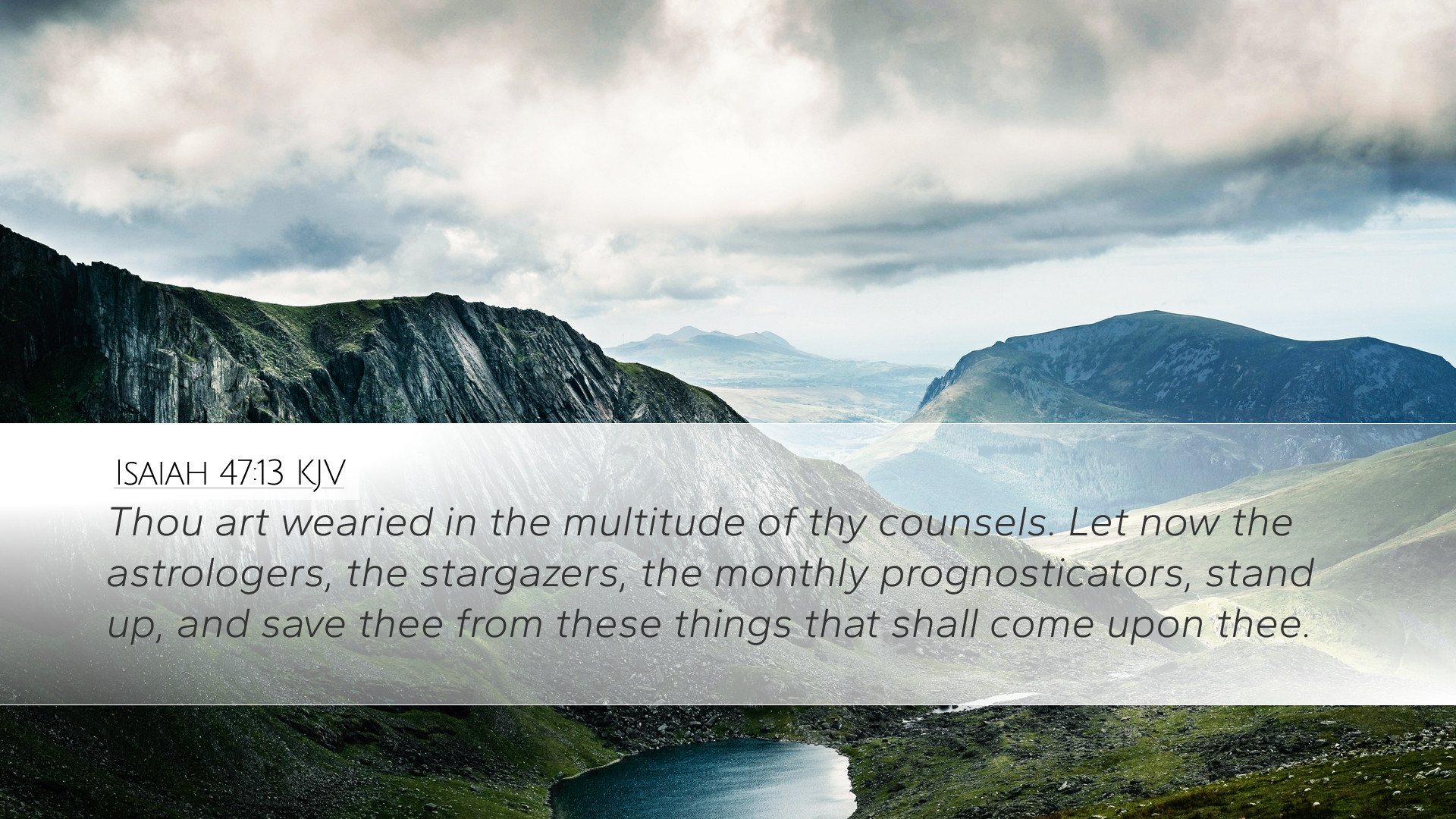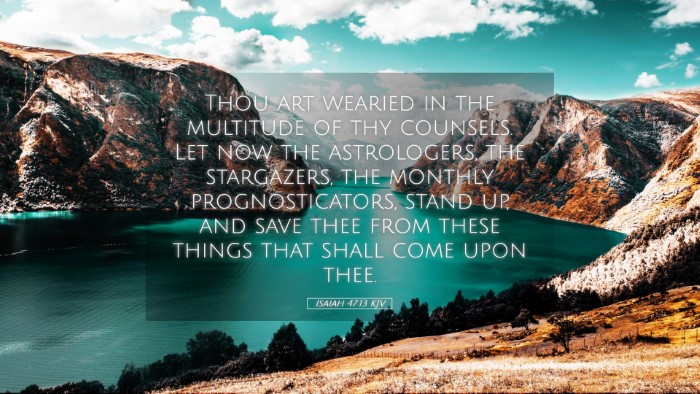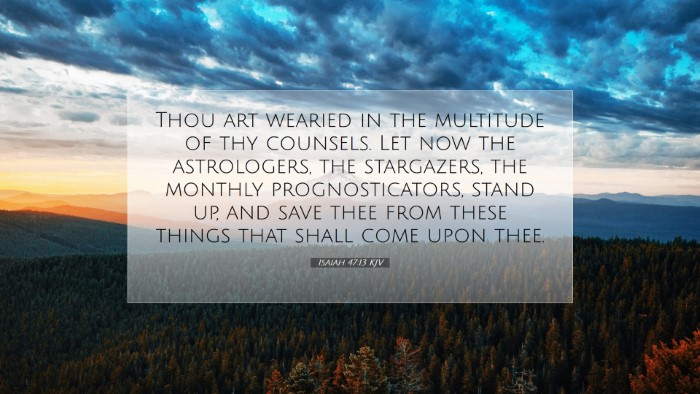Commentary on Isaiah 47:13
Introduction: Isaiah 47:13 presents a poignant reflection on human wisdom versus divine sovereignty. This verse, located in a passage that addresses the fall of Babylon, conveys a strong message about the futility of relying on human knowledge and the ultimate supremacy of God’s authority.
Verse Text:
"Thou art wearied in the multitude of thy counsels: let now the astrologers, the stargazers, the monthly prognosticators stand up, and save thee from these things that shall come upon thee."
Exegesis and Analysis:
The Context of Isaiah 47
This chapter is one of the climactic passages in Isaiah that illustrates God's judgment on Babylon, a symbol of worldly power and arrogance. As scholars like Matthew Henry note, the chapter serves as a powerful reminder that nations that boast of their strength and wisdom will ultimately face divine reckoning.
Human Counsel and Weariness
Albert Barnes elaborates on the first part of the verse, emphasizing the exhaustion and futility of human wisdom. The term "wearied" suggests a deep fatigue stemming from reliance on limited human understanding. The Babylonians believed they could manipulate cosmic forces through their astrological practices, showcasing a grave misunderstanding of God's ultimate control over the universe.
Astrologers and Prognosticators
The verse goes on to mock the effectiveness of "astrologers, the stargazers, and monthly prognosticators." Adam Clarke points out that these figures represent the pinnacle of human attempts to predict and control the future. The challenge to these wise men is rhetorical, pointing out their impotence in the face of divine judgment. Clarke reminds us that their mysticism and supposed knowledge cannot escape the reality of God's decrees.
Theological Implications:
The Failure of Secular Wisdom
The declaration that these learned men should stand up and rescue Babylon underscores the theme that secular wisdom is powerless against divine authority. Matthew Henry underscores that true wisdom begins with a reverent acknowledgment of God. To rely on worldly counsel is to neglect the sovereign hand of the Creator, whose purposes will ultimately prevail.
The Sovereignty of God
This passage starkly reveals the sovereignty of God. While Babylon is perhaps secured in their practices, the impending doom reminds both the Babylonians and the readers of Isaiah that all human efforts are futile without the guidance of God. Albert Barnes stresses that the prophecy not only serves as a warning to Babylon but also encourages believers to trust in God's providential plan rather than human predictions or systems.
Practical Application:
Relevance for Today
The relevance of Isaiah 47:13 extends beyond its historical context into the present age. Many today look to various forms of 'wisdom'—whether philosophy, science, astrology, or other human endeavors—to make sense of life’s complexities. Adam Clarke argues that the lesson here is clear: God's ways are higher than our ways, and our inability to predict the future does not undermine His sovereign plan.
A Call to Faith
For pastors and theologians, there is a significant message about the nature of faith and dependence on God’s wisdom. Congregations are often encouraged to turn away from worldly influences and trust in the divine revelations found in Scripture. Matthew Henry emphasizes the need for believers to ground their lives in the teachings of Scripture, which provide the true counsel that leads to salvation and peace.
Against Idolatry of Knowledge
The text also serves as a caution against the idolatry of knowledge. In an age that often equates education and information with wisdom, this passage reminds us that knowledge without a foundation in faith is ultimately unfulfilling and dangerous. Albert Barnes reminds us that the fear of the Lord is the beginning of wisdom, asserting that while knowledge can guide us, without foundation in faith, it lacks true direction.
Conclusion:
Isaiah 47:13 critiques the reliance on human wisdom, encourages the acknowledgment of divine authority, and reiterates the importance of faith over folly. For stakeholders in ministry, theology, and academia, it provides a framework to understand the divine-human relationship and encourages an attitude of dependence on God rather than the fleeting counsel of humanity. Through this reflective lens, we are led back to the core of our faith—that in the complexities of life, only God’s word stands firm and true.


